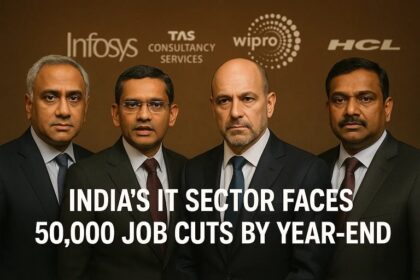Former Twitter CEO Parag Agrawal Launches AI Startup Parallel Web Systems with $30M Funding
Palo Alto, August 15, 2025 – Parag Agrawal, former CEO of Twitter, has unveiled Parallel Web Systems Inc., an AI startup focused on revolutionizing real-time web research, emerging from stealth mode with a $30 million seed round led by Khosla Ventures, Index Ventures, and First Round Capital. Launched on August 14, 2025, Parallel’s cloud platform, powered by eight specialized AI research engines, enables AI agents to access and process live web data, reportedly outperforming OpenAI’s GPT-5 by over 10% in benchmarks like BrowseComp and DeepResearch Bench. Agrawal’s venture, marking his return after a tumultuous exit from Twitter in 2022, aims to redefine AI-driven web interactions for industries ranging from e-commerce to software development.
A New Venture: Parallel Web Systems’ Mission
Founded in 2023, Parallel Web Systems addresses a critical gap in AI capabilities: real-time web data access. Unlike traditional AI models reliant on static, pre-trained datasets, Parallel’s platform allows AI agents to browse, retrieve, and analyze live internet data, delivering accurate, context-aware insights. The company’s flagship engine, Ultra8x, can process complex queries in up to 30 minutes, surpassing GPT-5 in deep web research tasks, while its fastest engine delivers results in under a minute. With a 25-person team of former OpenAI, Google, and Apple engineers, Parallel is already handling millions of daily research tasks for early adopters, including some of the fastest-growing AI companies.
Agrawal, who served as Twitter’s CTO and CEO from 2011 to 2022, envisions a future where “50 AI agents work online simultaneously for each user,” as he told Bloomberg. The platform’s three APIs—Task API, Search API, and a low-latency Chatbot API—cater to diverse use cases, from pulling GitHub code snippets for developers to tracking competitor pricing for retailers.
Funding Round | Amount Raised | Valuation | Lead Investors | Key Participants |
|---|---|---|---|---|
Seed (Aug 2025) | $30M | Not disclosed | Khosla Ventures | Index Ventures, First Round Capital |
Strategic Focus: Real-Time AI Research
Parallel’s cloud infrastructure features eight specialized AI research engines tailored for specific applications:
- Academic Research: Extracts scholarly data from open web databases.
- Business Intelligence: Monitors real-time competitor pricing and strategies.
- Developer Tools: Retrieves and analyzes open-source code repositories.
- Ultra8x: The flagship engine, excelling in deep, detailed queries with a 10% performance edge over GPT-5.
The platform provides confidence scores and citations for data verification, with customizable output formats like spreadsheets for market analysts. This focus on live data ingestion sets Parallel apart from competitors like OpenAI, Anthropic, and Google DeepMind, positioning it as a go-to infrastructure for AI-driven web research.
Research Engine | Function | Processing Time | Key Application |
|---|---|---|---|
Ultra8x | Deep web research | Up to 30 minutes | Complex queries, academic research |
Fast Engine | Quick data retrieval | Under 1 minute | Real-time business intelligence |
Developer Tools | Code repository analysis | Varies | Software development support |
Business Intelligence | Competitor tracking | Real-time | E-commerce, market analysis |
Industry Context: A Competitive AI Landscape
Parallel’s launch coincides with a surge in AI investment, exemplified by Cohere’s $500 million raise at a $6.8 billion valuation and Arintra’s $21 million for healthcare AI. The $1.2 trillion global AI market is fiercely competitive, with U.S. firms holding a 35% share. Parallel’s focus on enterprise-grade web research aligns with India’s growing tech influence, as seen in its role as the top U.S. smartphone supplier and Darwinbox’s $40 million raise. However, U.S. tariffs, including a 25% duty on Indian imports, and Trump’s push to curb Indian tech hiring could complicate Parallel’s partnerships with Indian firms.
On X, sentiment is optimistic. @Techmeme noted Parallel’s $30 million raise and GPT-5 outperformance, while @csvijaybohra praised its “APIs that let AI read and write the web.” @OGPrimaere speculated on Agrawal’s competitive drive post-Twitter, citing his team of “elite devs from Microsoft and Google.”
Challenges and Future Outlook
Parallel enters a crowded AI market, facing challenges like maintaining its technological edge, attracting developers to its platform, and forging partnerships in finance, healthcare, and education. Scaling its infrastructure to handle increasing demand while competing with giants like OpenAI requires significant capital and innovation. Geopolitical risks, including U.S.-India trade tensions, may impact talent acquisition and operations.
Looking ahead, Parallel plans to expand its research engines, develop enterprise APIs for large-scale data projects, and target sector-specific solutions, such as medical research and academic publishing. Agrawal’s vision of a “parallel web” optimized for AI agents positions the company to redefine internet infrastructure by 2026.
Conclusion: A Bold Return for Agrawal
Parag Agrawal’s Parallel Web Systems, backed by $30 million and a stellar team, marks a transformative entry into the AI ecosystem. By enabling real-time web research with unmatched performance, Parallel challenges industry leaders and redefines how AI interacts with the internet. As India’s tech prowess grows and global AI competition intensifies, Agrawal’s comeback signals a new era of innovation, with Parallel poised to shape the future of digital intelligence.













